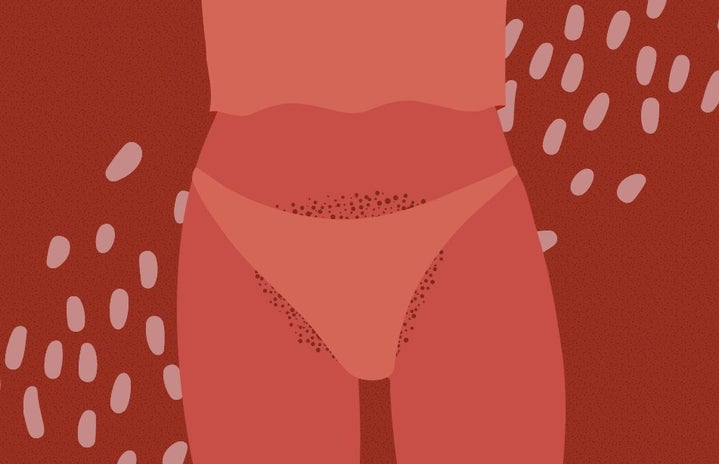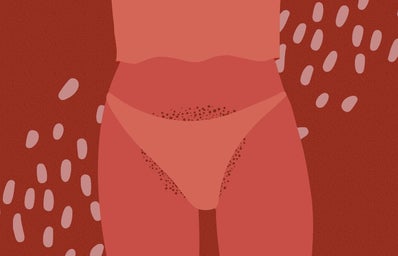There is nothing I used to dread more than the monthly period. Insane bleeding, intolerable cramps, fainting, vomiting, and the inevitable fact that I would eventually become bedridden due to the pain. However, none of this is normal.
I got my first period when I was twelve years old, but I never knew it would lead to all this discomfort and confusion. When you are little and just starting to hit puberty, you all learn that those with a uterus get a period. Along with the bleeding, a period also comes with cramps. But, I was nowhere near prepared for the pain my body would put me through during this time.
Within a year of my first period, I experienced my first fainting spell. It was one of the most traumatic experiences I have had to this day. I had worked so hard on a project for my world studies class, and when it came time to present, I stood up in front of the class and completely blacked out. I woke up crying and confused about what just happened. These fainting spells would last a few years before I was prescribed birth control.
“This will change your life,” I remember my gynecologist telling me. I was so excited and felt like I had finally found the solution to all my issues. After a year and a half of taking the monthly birth control pill, I had been prescribed, my life had not changed. I was still subject to fainting spells, throwing up, uncontrollable cramps, and heavy bleeding. I didn’t feel normal, so I went back to the gynecologist. This time I was given a ninety-one-day pill pack. She said, “Would you rather ‘suffer’ every month or every three?” and I was completely on board. I told her that normal methods of relieving my pain just weren’t cutting it. To this, she said, “I will be prescribing you Vicodin.” I got back into the car with my mother that day and told her about my two new prescriptions. “We are never going back there again.” My mom said, and so we never did.
It came time for my yearly check-up at the gynecologist, and my mom had found me a new doctor. I got ready to go and drove to her office, scared to feel belittled and unheard by yet another gyno. Except, this was the best appointment I had ever been to. She heard me out, she was attentive to all the things I had been through, and she truly seemed to care about my well-being. She was able to perform an ultrasound, and it turns out that after seven years of feeling unheard or like I was overreacting, I was diagnosed with endometriosis.
Endometriosis is a very common chronic illness, yet it is rarely spoken about. It is often painful and occurs when tissue grows outside the endometrium within the uterus. The tissue acts the same as it does when those with a uterus get a period. It sheds with no way to escape the body, thus creating immense pain during menstrual cycles, especially during that time of the month.
Endometriosis diagnoses are often delayed for up to six to ten years since period pain is labeled as “normal” and often goes underrecognized. Symptoms of endometriosis are often uncomfortable to talk about, these symptoms include painful menstrual periods, chronic pelvis and lower back pain, pain during or after sex, painful bowel movements or issues urinating during menstrual periods, infertility, diarrhea, extreme bloating, and nausea. The sad reality behind this is two out of five women are prescribed heavily addictive drugs such as opiates to relieve the pain before knowing how they can fix their endometriosis for good. Many of those report missing out on classes, extracurriculars, and work because of the amount of pain they experience and not knowing why.
Did you know that Endometriosis Awareness Month is in March? Despite taboos and stigmas against women’s reproductive health, the talk about endometriosis should not be limited to just the month of March. It is time to speak freely about endometriosis. Women should not have to wait up to ten years for a diagnosis. If your healthcare provider is making you feel unheard or like you’re overreacting, it is time to self-advocate and find the help you need and deserve. Reproductive health is not taboo, and endometriosis should be talked about every month.


